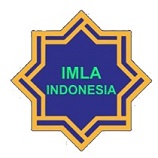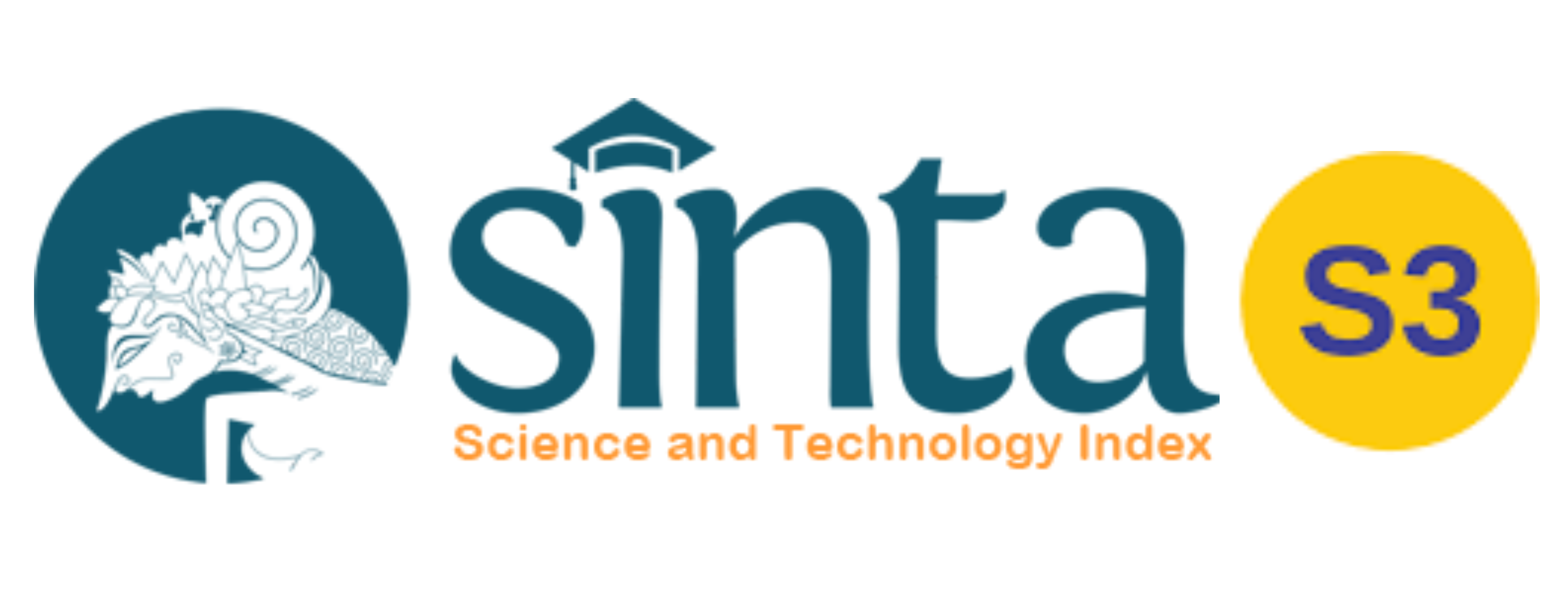THE PRINCIPLES OF BALANCE AND THE EMERGENCE OF HUMANITY AWARENESS IN ‘ALI AHMAD BAKĀTSĪR’S SALLĀMAH AL-QASS: ISLAMIC LITERARY PERSPECTIVE
Abstract
The worship of a servant to God will fall short of perfection without paying attention and treating those around them with respect. ‘Ali Ahmad Bakātsīr, through Sallāmah al-Qass, told a young man who solely practices solitary worship in his daily life and then suddenly falls in love with a sweet-voiced entertainer girl who changes his life. This paper aims to show the principles of balance and their impact on raising humanity's awareness in the novel, which can be classified as a textual-formalistic puritan Islamic literary work from an Islamic literary perspective. The data collection was carried out based on the work literature study method. The data were obtained by carefully reading the figures’ words, thoughts, and attitudes leading to a predetermined formal object. The data analysis method used was the interpretive method. The principles of balance found in the novel are (1) balance between individual worship and social worship, (2) balance between physical and spiritual life, and (3) balance between worldly life and the hereafter. These principles raise humanity's awareness, namely (1) other people outside of oneself need to be considered, not abandoned, and (2) one should not justify the good or bad of the other by only looking at their outward actions. Thus, the three principles of balance proposed by 'Ali Aḥmad Bakāṡīr in Sallāmah al-Qass show Islamic values, which are expected to be a guide for the life of Muslims. This is because this work is a puritan Islamic literature committed to implementing Islamic teachings for its adherents or believer.
Keywords
Full Text:
PDFReferences
Abukhudairi, Arif Karkhi. 2015. “Universality towards a New Theory of Islamic Literature.” European Journal of Research and Reflection in Arts and Humanities 3 (1): 34-47.
Akromusyuhada, Akhmad. 2018. “Seni dalam Perpektif Al-Quran dan Hadist.” Tahdzibi Manajemen Pendidikan Islam 3 (1): 1-6.
al-Areqi, Rashad Mohammed Moqbel. 2016. Rise of Islamic Literature between Fact and Fiction. Sana’a: Sana’a Community College
‘Abbūr, Ṡalṡāg. 1996. Al-Malāmih al-‘Āmmah li Naẓariyyah al-Adab al-Islāmiy. Dimasq: Dārul-Ma’rifah.
Badawi, Muhammad. 1993. “Islamic Literature between Theory and Practice.” 1 (1): 46-69.
Bakāṡīr, ‘Ali Aḥmad. 1943. Sallāmah al-Qass. Kairo: Maktabah Misr.
Bisri, Mustofa A. 2016. Saleh Ritual Saleh Sosial. Yogyakarta: Diva Press.
Ad-Dāyim, Ṣābir ‘Abdu. 2002. Al-Adab al-Islāmiy: Baina an-Naẓariyyah wa at-Taṭbīq. Kairo: Dar asy-Syuruq.
Hanash, Idham Mohammed. 2017. The Theory of Islamic Art Aesthetic: Concept and Epistemic Structure. Translated from the Arabic by Nancy Roberts. London, Washington: The International Institute of Islamic Thought.
Hassan, Md. Mahmudul. 2016. “Islamic Literature: Definition.” Nature and Scope IIUC Studies 13: 43-45
Hidayati, Nuril. 2007. Estetika Sastra Islam: Kajian terhadap Novel Di Bawah Lindungan Ka'bah karya Haji Abdul Malik Karim Amrullah (HAMKA), thesis at Universitas Gadjah Mada.
al-Kailāniy, Najīb. 1407 H. Madkhal ila al-Adab al-Islāmiy. Doha: Idāratu al-Buhūṡ wa ad-Dirāsāt bi Wizārati al-Auqāf wa asy-Syu`ūn al-Islāmiyyah.
Khalid, Sheeba. 2020. Humanity in Islam. Law Mantra.
Kubarek, M. 2016. “Should the Culture Be Engaged? Modern Islamic Literature and Its Religious and Political Engagement.” International Journal of Culture and History, 2(1): 54-58.
Lajnah Pentashihan Mushaf Al-Qur’an Badan Litbang dan Diklat Kementerian Agama RI. 2019. Al-Qur’an dan Terjemahannya. Edisi Penyempurnaan.
Manshur, Fadlil Munawwar. 2010. “Sastra Islam dalam Perdebatan: Mencari Konsep Teoretik yang Menjembatani antara Pandangan yang Puritanistik dan Liberalistik.” Paper of Intellectual.
Mohammad, Goenawan. 1982. Posisi Sastra Keagamaan Kita Dewasa Ini dalam Sejumlah Masalah Sastra Satyagraha Hoerip (ed). Jakarta: Sinar Harapan.
Putra, Yerri Satria. 2015. Humanisme Teosentris dalam Sastra Islam Minangkabau: Kajian Atas Nazam-Nazam Minangkabau. thesis at Universitas Gadjah Mada.
Qardhawi, Yusuf. 2006. Islam dan Sekulerisme. Translated by Amirullah Kandu. Bandung: Pustaka Setia.
Ramadona, Syahri. 2020. “al-Adab al-Islami.” Waraqat 5 (1): 189-211.
Rizali, Nanang. 2012. “Kedudukan Seni dalam Islam.” Tsaqafa: Jurnal Kajian Seni Budaya Islam 1 (1): 1-8.
Safliana, Eka. 2008. “Seni dalam Perspektif Islam”. Islam Futura 7 (1): 100-107
Shukri, M. A. M. 1992. “Towards an Islamic Theory of Literature Islamic Studies.” Winter 31 (4): 411-421.
Shvachkina. 2020. “The Idea of Humanity in Islam”. SEI Conference Proceedings 3 (1).
Ṣubḥ, Ali ‘Ali, dkk. 1992. Al-adab al-Islāmiy: al-Mafhūm wal-Qaḍiyyah. Beirut: Dār al-Jīl.
Syihab, Qurasy. 2016. Wasathiyyah Wawasan Islam tentang Moderasi Beragama. Jakarta: Lentera Hati.
‘Uṡmān, Samiyyah as-Sayyid. Tt. At-Tawāzun fil-Islām.
Yulianti, E., & Hamzah, S. 2021. “The Phenomenon of Islamic Literature as a Tool For Educating Muslim in Indonesia (A Reflection To Increase the Verbal Intelligence).” Jurnal Pendidikan Tambusai 5(3): 9535–9540.
Yurwanto, Yedi. 2014. “Memaknai Pesan Spiritual Ajaran Agama dalam Membangun Karakter Kesalehan Sosial.” Jurnal Sosioteknologi 13 (1): 41-46.
Zarabozo, Jamaal al Din M. 2005. What is Islam?. Riyadh: The Under-Secretariat of Publication and Research.
Zuhri, Ahmad Saefudin, Syamsul Hidayat, and Moh. Abdul Khaliq Hasan. 2014. “Pendidikan Transformasi Kesalehan Individu Menuju Kesalehan Sosial di Era Globalisasi.” Script of scientific publications.
DOI: https://doi.org/10.20961/cmes.15.2.63255
Refbacks
- There are currently no refbacks.
Copyright (c) 2022 Center of Middle Eastern Studies (CMES): Jurnal Studi Timur Tengah

This work is licensed under a Creative Commons Attribution-ShareAlike 4.0 International License.
| Copyright of CMES ISSN 2085-563X (print) and ISSN 2502-1044 (online) CMES Journal is licensed under a Creative Commons Attribution-ShareAlike 4.0 International License. | CMES (Center of Middle Eastern Studies) Print ISSN: 2085-563X Online ISSN: 2502-1044 Website: https://jurnal.uns.ac.id/cmes/index Email: cmes@mail.uns.ac.id Published by: Arabic Literature Department, Faculty of Cultural Science, Universitas Sebelas Maret Ir. Sutami Street, No. 36A, Surakarta, Jawa Tengah 57126 Phone: +62 822-4000-2313 |















